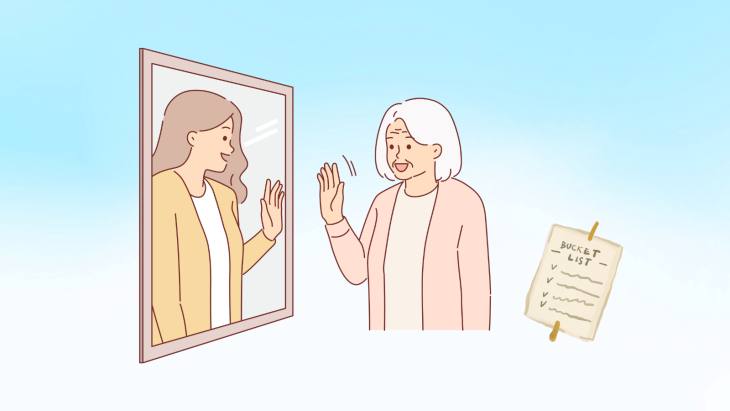Recent Posts
- Am I too sensitive to noise? It drives me crazy! The psychological effects of noise on mental health
- What are the signs that I am avoiding grief? How avoiding processing loss impacts mental health
- My son's disruptive behavior is affecting his life. How can I help him improve?
- I want to be ready for motherhood: Exploring pre- and postnatal mental health issues
- Effects of positivity on job search motivation. How do I stay confident when my job search gets tough?
Most Popular
What things do people commonly regret once they have grown old? I want to live with few regrets!

Part of adding years to our life is getting familiar with the feeling of regret. It is part of life.
Often, regret is associated with negative feelings of loss, of not being able to bring back time and correct things that we later realized were mistakes, and of things that we will not experience again. It is connected with feelings of pain from the past.
Before exploring how we can make use of the present and thereby decrease our feelings of regret later in life, let us first look at regret in old age, according to science.
- Older adults may experience the negative effects of regret less.
In a study published in the journal Science, researchers wanted to know how old people experience regret. And they formed the hypothesis that as older people detach themselves from feelings of regret later in life, they become happier as old adults.
In the experiment, three groups of adults (depressed older participants, healthy young participants, healthy older participants) played a game that induced them to feel regret. The researchers were surprised to see through brain scans using functional magnetic resonance imaging (fMRI) that the depressed older participants, healthy young participants reacted similarly when they missed opportunities, while healthy older participants were able to separate themselves from the emotion of regret.
- Regrets may lead to positive emotions and help regulate negative moods in older adults.
Researchers surveyed 629 adults aged 18 to 92 years old and asked them about their attitude about regret. They found that as adults got older, they had a more positive attitude towards regret, and these positive attitudes were able to help older adults regulate their mood.
The researchers proposed a theory called Socioemotional Selectivity Theory which suggests that as people age, they have more tendencies to focus on the more positive areas of life, including their past.
It further suggests that aging is related to a preference for positive recollections and memories, and that older people choose to remember those that give emotional satisfaction, than memories that trigger negative emotions.
Researchers said that this preference may lead older people to find meaning and satisfaction in life goals.
Through these studies, we get an idea that our view of and attitudes toward regret may also change through time.
But what are the most areas of life that come up as common aspects that people regret?
- Not taking more responsibility in one’s romantic life and financial life,
- Not making healthy lifestyle habits a priority,
- Putting more value on material things, rather than experiences,
- Not being more vulnerable and loving to the most important people in one’s life despite knowing that love is important,
- Not being kind to one’s self,
- Procrastinating and not taking action about important things,
- Not being courageous enough to explore things one loves, and not realizing one’s potential.
How can one live a life of meaning and purpose with few regrets later in life?
Though this is a highly personal experience, here are some suggestions that revolve around the aspects of life that people seem to derive the most happiness and fulfillment.
- Take charge of your fitness. You have one body and this body will carry you through the changes that aging brings.
- Know that life is short, and time is finite. Appreciate the little moments in the present, and do what is important to you. Do you have a passion? Pursue it.
- If you have a family, dedicate yourself to them as much as you dedicate yourself to other important things like your career. Your partner grows older, as your children do. Live your best life with your family.
- Find meaning in your relationships and in your spiritual life.
- Find the healing that you need, so that you can be a healthy role-model and impact those around you positively.
Regrets stem from the decisions we make now. Our decisions have various outcomes that take us to either feel sorry, or to feel victorious in the end. Live your life, and find meaning and happiness for today, and for the future.
Explore the top healthcare and medical jobs nationwide and discover job opportunities in the field of healthcare and mental health.








Comments